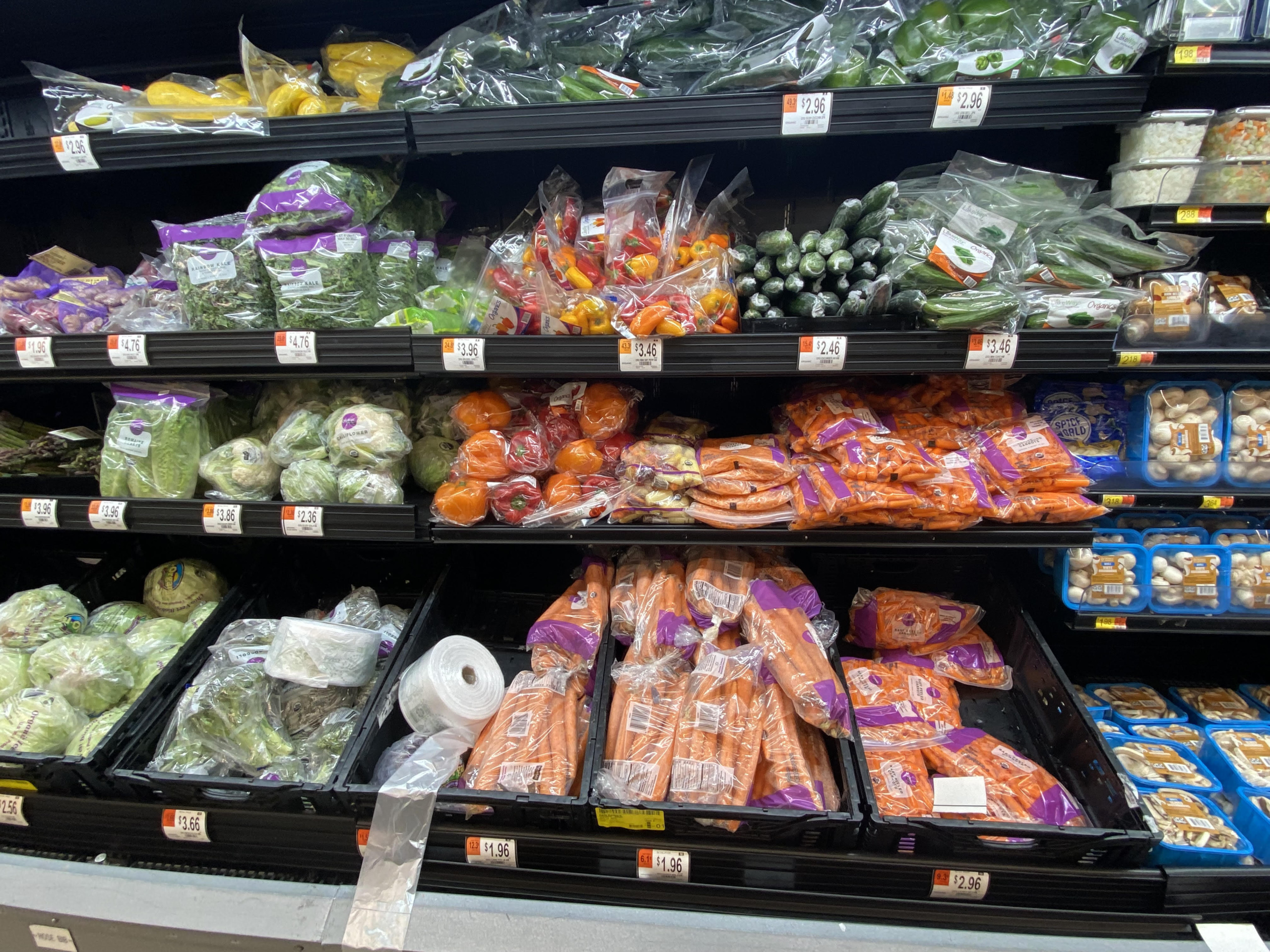
Tell Walmart: Ditch the single-use plastic packaging
Walmart is America’s largest grocer. By taking action to reduce its plastic packaging, it could trigger a domino effect across the industry.
Add your name
Every time you run to the grocery store, it can feel like you’re coming home with more and more plastic.
That pasta in a plastic bag that you could swear used to come in a cardboard box. The head of lettuce shrinkwrapped in plastic film. The berries in a plastic clamshell instead of a quart-sized cardboard basket. Our reliance on plastic packaging is a growing problem — and it’s fueling our country’s plastic waste crisis.
Walmart is the nation’s largest grocer by revenue — far surpassing Costco, Kroger, Sam’s Club and others. But its use of plastic packaging is having a similarly large impact on our communities, our environment and even our health.
Every 15.5 hours, Americans throw out enough plastic to fill the largest NFL stadium in the country, and the pile is growing larger every year. And plastic packaging, like the kind that comes home with your groceries each week, is a major contributor to the problem — especially when you consider that 91% of plastic isn’t recycled, but instead landfilled or incinerated. Incinerating waste generates air pollution, and waste that escapes from landfills pollutes our communities, waterways and oceans.
In total, there are about 4,700 Walmart stores nationwide. That averages out to almost 100 per state.
Walmart is, first and foremost, a superstore — popular in large part because of its affordability and its massive range of products. Over time, the company has gained a particularly strong foothold in the grocery industry. Tens of millions of Americans rely on Walmart for their weekly food shopping.
But the corporate giant could do much more to curb the mountain of plastic waste that it’s responsible for producing.
From unnecessarily wrapping produce in plastic, to replacing cardboard pasta boxes with plastic ones, Walmart is sending its customers home with far too much plastic.
And all of that plastic packaging adds up to a lot of extra waste: More than a quarter of all of America’s garbage is packaging.
Walmart is a worldwide brand. With 11,000 properties across the globe, its influence in the industry is by no means limited to the U.S. — meaning its leadership in reducing plastic waste could have a global impact.
But what if we convinced the superstore to ditch the unnecessary plastic and help lead the way toward a cleaner, more sustainable future? It could start a domino effect in the industry.
The more of us speak up, the more likely it is that Walmart will listen. And there are signs that the company is open to change — it’s already said it will eliminate unnecessary plastic packaging, though it hasn’t given a timeline or provided details about how it plans to phase out single-use plastic packaging and from which products.
So we’re rallying thousands of people like you to send a clear message telling Walmart to take concrete action to reduce its plastic waste.
Add your name: It’s time for Walmart to stop being part of the plastic problem and become part of the solution.
By taking strong action against plastic waste, America's largest grocer could trigger a domino effect across the industry.
Add your name
As president of PIRG, Faye is a leading voice for consumer protection and public health in the United States. She has been quoted in major news outlets, including CBS News and the Washington Post, about issues ranging from getting toxic chemicals out of children’s products to protecting Americans from predatory lending practices. Faye also serves as the executive vice president for The Public Interest Network, which PIRG founded. Faye began her public interest career as a student volunteer with MASSPIRG Students at Williams College. After graduating in 1992, she began working with the Student PIRGs in California as a campus organizer and organizing director, working on campaigns to help students register to vote and to promote recycling. She lives in Denver with her family.